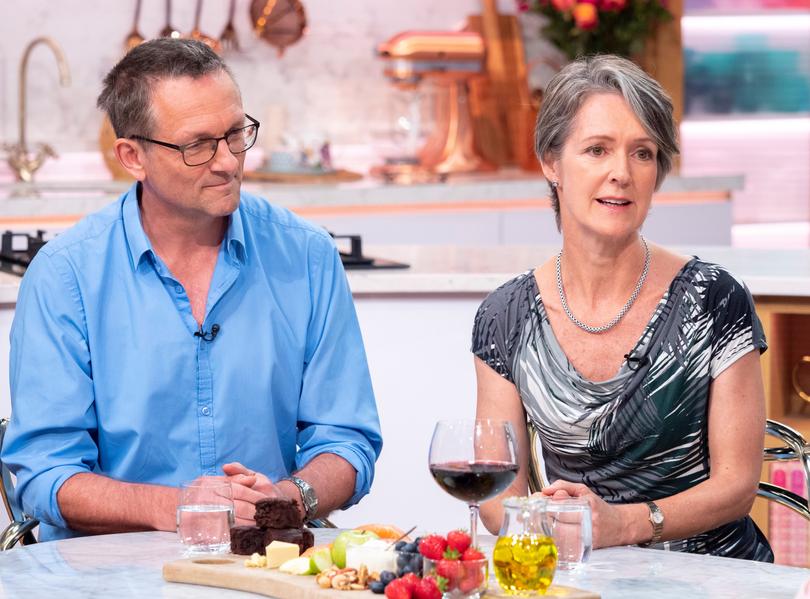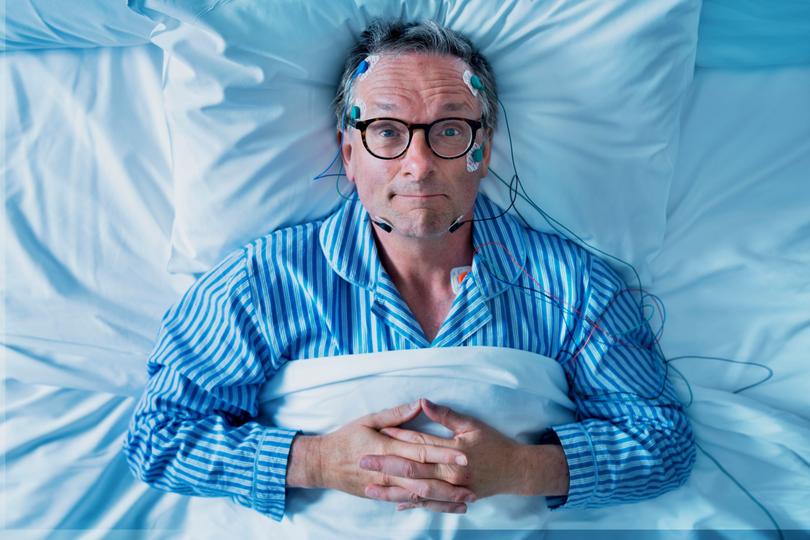The five diet tips Michael Mosley came back to again and again in a career of sharing health advice
Dr Michael Mosley shared countless tips on dieting and weight loss throughout his life. Here are five of the most important.

Michael Mosley was as much a beloved celebrity doctor as a trusted health professional, renowned for his revolutionary diet advice and unconventional, self-experimentation approach to health education.
His career was spent challenging stale ideas, bringing his talents of wit, gusto and lateral thinking to testing theories that often seemed improbable at first — never dismissing or championing a claim without testing it himself.
Time and time again, Mosley made himself a human guinea pig — whether by ingesting tapeworms, trying magic mushrooms, or, famously, fasting to cure his Type 2 diabetes — all in the name of science education.
Sign up to The Nightly's newsletters.
Get the first look at the digital newspaper, curated daily stories and breaking headlines delivered to your inbox.
By continuing you agree to our Terms and Privacy Policy.Dr Mosley’s body was found on Sunday after a desperate four-day search was triggered when he did not return from a coastal walk on the Greek island of Symi on Wednesday. It is believed he succumbed to heatstroke during the walk.
Dr Mosley’s wife, Dr Claire Bailey, led tributes to her “wonderful, funny, kind and brilliant husband” who left an enormous legacy on health and science entertainment.
Friends and fans paid tribute to the doctor’s knack for cutting through the “hocus pocus” of diet and medical information to improve thousands, if not millions, of lives with his bestselling books and top-rating TV, radio, and podcast series.
Over his career, Dr Mosley learned and shared dozens of diet and lifestyle tips to audiences keen to improve their health; but there were a number he kept coming back to. And, in true Mosley fashion, he kept it very simple.
Follow a Mediterranean diet (and lifestyle)
If keeping it simple was a diet, it is the nutrient-rich Mediterranean diet that Dr Mosley sang the praises of.
“I am a big fan of the Mediterranean diet, which is rich in oily fish, nuts, vegetables and legumes (such as lentils and red kidney beans),” he wrote for BBC Science Focus.
He liked it so much, and trusted the numerous studies that found the diet the most beneficial to health — including reducing the risk of chronic diseases like Type 2 diabetes and heart disease — that the high-veg and protein, low-carb diet formed the basis of his famous 5:2 and Fast 800 plans.
Generally speaking, Dr Mosley encouraged filling our plates with vegetables and proteins. He recommended filling one-third of our plates with non-starchy greens — spinach, lettuce, snap peas, asparagus, celery, broccoli — and eating at least 20 grams of protein at every meal.
And more than just spruiking the health perks of the Mediterranean diet, Dr Mosley echoed the Mediterranean ethos for enjoying food — and life.

Restrict your eating hours
Dr Mosley popularised intermittent fasting when he adopted (and documented for the BBC) the 5:2 diet to reverse his Type 2 diabetes diagnosis in 2012.
The 5:2 diet is a type of intermittent fasting where calories are restricted for two days of the week, but normal intake resumes for the other five. Dr Mosley told the ABC he thought it was “crazy” at first.
And, yet, at the end of the BBC program, he had lost 9kg and his blood sugars were “entirely fine”. The experiment led him to write The Fast Diet with food and fashion writer Mimi Spencer.
Intermittent fasting can also look like day-to-day fasting, that is, not changing what or how much you’re eating in a whole day, but the time window.
Dr Mosley said in his Just One Thing series that he followed research that found eating in a 12-hour window “could improve your sleep, blood pressure, cholesterol and help with weight loss, without limiting your calories”.
Drink a large glass of water with every meal
Dr Mosley knew how “old-fashioned” he sounded with this tip, but he always had a glass of water with each meal.
Not only, he said, did it keep him hydrated, but he also found it helped with his productivity and kept him fuller for longer.
And yet, he did not necessarily believe in drinking specific amounts of water; instead, he told Vogue, he followed one rule.
“I have a seven-a-day rule, which is to try and go to the loo seven times a day to pass urine,” he said. “If you drink lots of water, then you’ll cut some of your cravings and feel hydrated.”
Drop and give him 20 ‘exercise snacks’
At age 66, Dr Mosley had the spine of a 25-year-old. He said it was because he did push-ups and squats as soon as he rolled out of bed each morning.
He told This Morning he and his wife Claire began this habit as part of testing for his Just One Thing series — a BBC radio series podcast-turned-bestselling book — and had already noticed the benefits.
Push-ups (or press-ups as Dr Mosley called them) were not only “really good” for muscular strength and the spine, but he also said the movement was also for getting “oxygen to your brain”.
“Doing something simple like (push-ups and squats), it is probably one of the best all-round exercises you can do and you can do them in about two minutes, really over and done for the day and then you get on with the rest of your day,” he said.
It’s a kind of “exercise snacking” that he endorsed, short 10-minute bursts of activity squeezed into the day — a brisk walk or a few trips up and down stairs will do — that he found gave him the same, if not better, results for his health and fitness than a full gym session.
Hit the hay and hit it well

At the other end of the spectrum, Dr Mosley emphasised the importance of sleep.
In his career, he cited multiple research studies that found the effects of sleep — good and bad — on health and weight loss efforts.
“We know after a bad night’s sleep you eat on average 300-400 more calories and it’s specifically carbs we seem to seek and give us a lift there,” he told Good Food.
That is because a sleep-deprived body — one that does not get the recommended 7-8 hours each night — produces more of the hormone ghrelin, which increases feelings of hunger and thus the urge to head to the pantry again and again.
So head to bed, and catch those Z’s so you can get those squats done in the morning.
